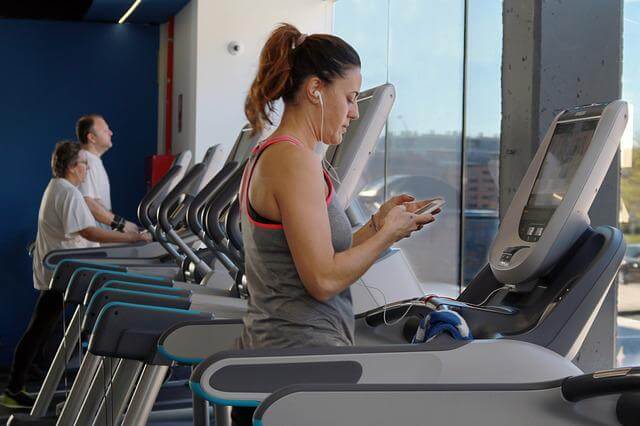According to the World Health Organization, musculoskeletal conditions affect over 1.7 billion people worldwide, making them one of the leading causes of disability. In addition, nearly 80% of adults experience back pain at some point in their lives, and the global demand for physiotherapy services is expected to grow by more than 20% over the next decade. Despite this rising need, many individuals face barriers to accessing timely and effective physiotherapy care—whether due to mobility issues, busy schedules, or lack of nearby clinics.
In response to these challenges, mobile physiotherapy has emerged as a patient-centered solution that delivers expert care directly to your doorstep. This innovative approach combines convenience with personalized treatment, enabling individuals to recover, manage chronic conditions, and maintain wellness without the added stress of traveling to a clinic. In this article, we’ll explore what mobile physiotherapy is, its benefits, and how it can effectively support your body’s recovery and wellness.
What is Mobile Physiotherapy?
Mobile physiotherapy, sometimes called home physiotherapy, involves licensed physiotherapists traveling to a patient’s home, workplace, or another convenient location to provide assessment, treatment, and rehabilitation services. It uses the same evidence-based practices and techniques as clinic-based physiotherapy but adds the critical advantage of flexibility and accessibility.
This approach is especially beneficial for individuals with limited mobility or severe pain, seniors and elderly patients who find it difficult to travel, post-surgical patients during the early recovery phase, busy professionals juggling work and family responsibilities, and people living in remote or rural areas with limited access to physiotherapy clinics.
How Mobile Physiotherapy Supports Recovery
1. Personalized, One-on-One Care in a Comfortable Environment
Mobile physiotherapy offers personalized, one-on-one care tailored to the specific needs of each patient. Treatment plans are designed based on a thorough initial assessment of your injury, condition, or mobility issues. Because the therapy takes place in your own environment, therapists can directly observe how you move and function daily, which provides critical insights that may not be apparent in a clinic setting.
For example, a physiotherapist visiting your home can assess your posture while sitting on your own couch, observe how you climb stairs in your own home, or identify potential hazards that may contribute to your condition. This context-specific approach allows for more precise and relevant interventions, which can accelerate your recovery.
2. Enhanced Motivation and Consistency
When therapy comes to your doorstep, it eliminates many common barriers such as transportation difficulties, time constraints, or bad weather. This convenience encourages patients to stay consistent with their treatment plans, which is essential for effective rehabilitation. Many people turn to trusted mobile physiotherapy providers because they offer reliable, professional care that fits seamlessly into busy lifestyles.
Many patients find that receiving therapy at home boosts their motivation. They are more relaxed and receptive in a familiar setting, making it easier to engage actively in exercises and therapies. Consistency and active participation are key to successful recovery and long-term wellness.
3. Faster Return to Daily Activities and Independence
Mobile physiotherapy supports quicker recovery by promoting early mobilization and functional rehabilitation. Therapists guide you through tailored exercises and manual therapies that improve strength, flexibility, and balance, reducing pain and restoring function.
This is particularly important after surgeries or injuries, where prolonged inactivity can lead to muscle atrophy, stiffness, and other complications. By bringing therapy to your environment, mobile physiotherapy encourages you to practice movements that are directly relevant to your daily life, helping you regain independence faster.
Supporting Wellness Beyond Injury Recovery
Mobile physiotherapy is not only beneficial for injury recovery but also plays a vital role in promoting overall health and wellness. Here’s how:
1. Chronic Pain Management
Chronic conditions such as arthritis, fibromyalgia, and back pain can significantly impact quality of life. Mobile physiotherapists work with patients to manage pain through tailored exercise programs, manual therapy, posture correction, and education on pain management strategies.
By delivering ongoing care at home, physiotherapists can monitor changes closely and adjust treatments accordingly, helping patients maintain mobility, reduce discomfort, and improve their daily functioning.
2. Preventative Care and Health Maintenance
Physiotherapy is also a powerful tool for preventing injuries and maintaining physical health. Mobile physiotherapists can provide ergonomic assessments and advice tailored to your specific work or home setup, helping reduce strain and the risk of injury.
They can also develop personalized fitness programs that enhance cardiovascular health, muscle strength, and flexibility, helping you stay active and healthy as you age.
3. Supporting Mental Health
Physical health and mental wellbeing are deeply interconnected. Chronic pain and reduced mobility can contribute to anxiety, depression, and social isolation. Mobile physiotherapy helps mitigate these issues by empowering patients through movement and activity, fostering a sense of control over their health.
Additionally, receiving therapy in a familiar environment can reduce anxiety related to medical visits and encourage open communication between therapist and patient.
Who Can Benefit from Mobile Physiotherapy?
Mobile physiotherapy suits a wide range of individuals across different age groups and health conditions:
- Post-operative patients who need early and regular physiotherapy to prevent complications and improve outcomes.
- Elderly individuals facing mobility challenges and chronic conditions, where accessible care promotes independence.
- People with disabilities or neurological conditions such as stroke or Parkinson’s disease, requiring tailored home care.
- Athletes and active individuals recovering from injuries or seeking injury prevention and performance optimization.
- Busy professionals and parents needing flexible scheduling to fit therapy into demanding lifestyles.
What to Expect During a Mobile Physiotherapy Session
A typical mobile physiotherapy session begins with a detailed assessment. The therapist will:
- Review your medical history and relevant diagnostic reports.
- Evaluate your current physical condition, pain levels, range of motion, strength, and posture.
- Observe how you perform daily activities in your home or work environment.
- Identify specific goals for treatment and recovery.
Following this assessment, the therapist will develop a personalized treatment plan that may include:
- Manual therapy such as massage, mobilization, or manipulation to reduce pain and improve movement.
- Therapeutic exercises to restore strength, flexibility, and coordination.
- Education on posture, ergonomics, and self-management techniques.
- Use of modalities like heat/cold therapy or electrical stimulation if appropriate.
- Recommendations for assistive devices or home modifications if needed.
Throughout your treatment, the physiotherapist will monitor your progress, modify the plan as necessary, and provide ongoing guidance and encouragement.
Advantages of Mobile Physiotherapy Over Traditional Clinic Visits
Mobile physiotherapy offers several distinct advantages over traditional clinic-based treatment. Firstly, it removes the inconvenience of travel, saving time and reducing stress associated with parking, public transport, or bad weather. This makes it easier to attend sessions consistently.
Secondly, receiving therapy in your personal environment allows for treatment plans that are specifically tailored to your daily routines and surroundings. Therapists can directly observe how you move within your own space and recommend realistic modifications and exercises.
Thirdly, familiarity helps reduce patient anxiety and promotes greater engagement and participation in therapy. Many patients find they can focus better and feel more comfortable asking questions and discussing concerns when they are at home.
Lastly, mobile physiotherapy is ideal for individuals who have mobility issues, chronic illness, or transportation limitations, ensuring equitable access to care.
Tips for Maximizing the Benefits of Mobile Physiotherapy
To get the most out of your mobile physiotherapy experience, consider the following tips:
- Be open and honest about your symptoms, concerns, and goals with your therapist so they can tailor the treatment effectively.
- Follow your prescribed exercise program consistently between sessions to enhance recovery.
- Create a safe and clear space in your home for exercises and therapy, free from obstacles and hazards.
- Communicate any changes in pain, mobility, or challenges to your therapist so they can adjust your treatment plan accordingly.
- Stay committed to your therapy schedule and active participation, as recovery and wellness are ongoing processes.
Mobile physiotherapy is revolutionizing the way we approach physical rehabilitation and wellness. By delivering expert care directly to your home or workplace, it removes many traditional barriers, making therapy more accessible, personalized, and effective. Whether you are recovering from an injury, managing chronic pain, or striving to maintain an active lifestyle, mobile physiotherapy can support your body’s recovery and overall wellbeing.
Embracing this flexible and patient-focused approach empowers you to take control of your health journey with convenience and confidence. If you’re looking for a practical and effective way to enhance your physical health, consider mobile physiotherapy—your body will thank you.















